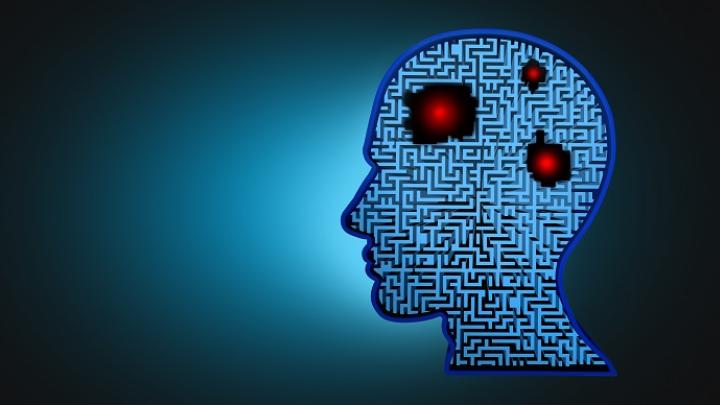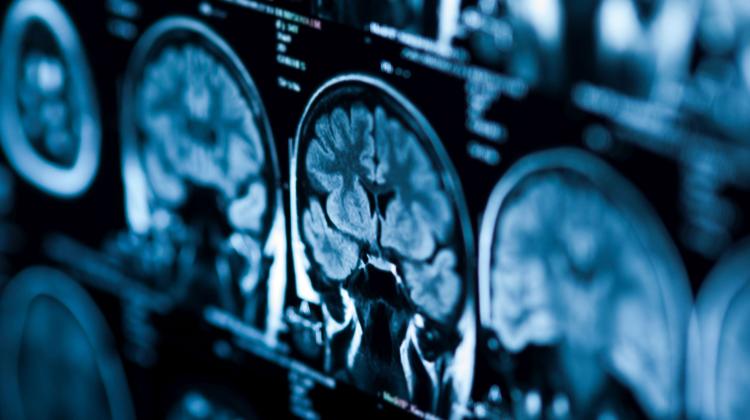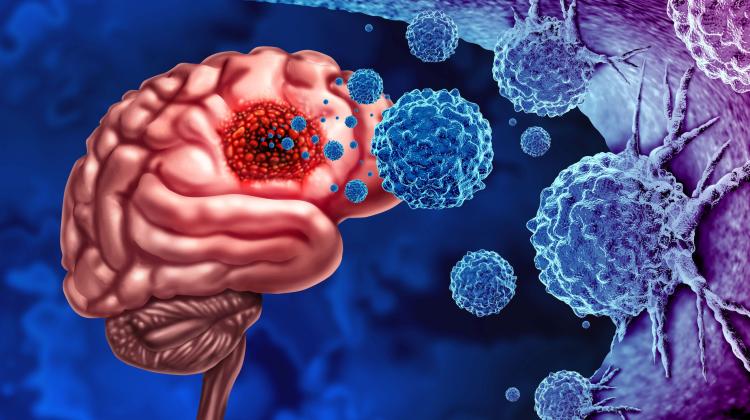A brain that delays: Do people who procrastinate learn less from mistakes?
 Photo: Fotolia
Photo: Fotolia
People with tendency to procrastinate - those who tend to postpone important matters "until tomorrow" - process their mistakes differently than people who do not delay. This was demonstrated in brain studies by Polish neurobiologists.
The deadline for entering your dream competition is tomorrow, and you have not yet started writing your application? You live by the saying "Never do today what you can do tomorrow!"? Maybe you are struggling with procrastination?
"Procrastination is irrational postponing of previously planned activities despite being aware that this will lead to discomfort or stress" - explains Dr. Marek Wypych from the Brain Imaging Institute of the Nencki Institute of Experimental Biology i in Warsaw. The scientist and his colleagues check whether the brains of people with procrastination tendency work differently than the brains of people who do not have this approach.
WHAT DO WE KNOW ABOUT PROCRASTINATION?
Dr Wypych says that there are probably various mechanisms related to procrastination. Research has already shown, for example, that half of people with ADHD exhibit similar tendency to delay activities. "In their case, this is due to attention disorders" - comments the scientist.
It is also known that sometimes procrastination may be linked to the regulation of emotions. "People who procrastinate under the influence of negative emotions tend to delay even more: if they are stressed that they are not able to prepare for an exam, they delay learning even more. It they are afraid of being seriously ill, they will be more reluctant to see the doctor" - the scientist says.
He adds that for some, procrastination goes hand in hand with perfectionism. "If I set the bar too high, it paralyses me, and when I delay doing the task, I have an excuse that my work is not perfect, because I did it at the last minute" - the scientist explains.
It would seem that among people with tendency to procrastinate, there is a higher percentage of sensation seekers (sending the income tax return at the last moment certainly involves additional emotions). But this theory turned out to be false. Research has shown that there is almost no correlation between procrastination and sensation-seeking.
It has also been shown that procrastination and impulsiveness go hand in hand (scientifically speaking: there is a positive correlation between them). Impulsiveness is a tendency to take action (and in the case of procrastination, give up on planned activities) under the influence of a momentary impulse.
ARE THE BRAKES WORKING?
Researchers from the Nencki Institute decided to check the braking mechanism in people with tendency to procrastinate. Researchers expected that people who tended to postpone things would have lower braking task results, because it would be harder for them to fight the impulse to do something else than they should be doing.
In the first experiment, the surveyed students performed a go/no-go task. Two types of stimuli are shown in the experiment. The task of the subject is to press the button when he or she sees one stimulus, and not to press when the second stimulus is displayed. The first stimulus appears frequently and the second one sporadically. When the second stimulus appears, the subject must refrain from pressing the button.
The study showed that there were no great differences in this "braking" between those with and without procrastination tendencies. But detailed analysis of the results revealed something interesting. There were differences between the groups in how people reacted to their own mistakes. This particularly applied to those cases, where each mistake was associated with a financial fine (subtracted from the sum that the subject would receive for participation in the study).
NOT EVERYONE LEARNS FROM MISTAKES
It turned out that after each mistake, people who did not have a procrastination problem needed a little more time for the next answer. This is called post-error slowing. It is interpreted as the additional work that the brain does to process information about the mistake. It is an important moment in the process of learning from your own mistakes. Meanwhile, in the group of procrastinating subjects, there was no such post-error slowing - some even got a "kick" from their error and made further attempts faster.
To more thoroughly check what was happening right after making the mistake, researchers decided to investigate this phenomenon using functional magnetic resonance imaging (fMRI). This study shows which areas of the brain are more active during a given task. In fMRI, a go/no task was also performed, and in one version the subjects were fined for mistakes. And indeed, it has been observed that after making a mistake, the brains of procrastinating and non-procrastinating people work differently. Research is in the process of being published.
"In people with a tendency to procrastinate, the activity of the anterior cingulate cortex (ACC) after a mistake is lower than in people who do not procrastinate" - the scientist says. The same effects were observed in similar experiments on people struggling with addictions and on recidivists.
Dr Wypych talks about experiments performed abroad. Prisoners leaving prison performed a similar go/no-go task in fMRI. It turned out that the lower activity of this part of the ACC after a mistake allowed to predict a return to prison within the next four years.
"Such inferior error processing in a simple task involving pushing a button reflects the inability to learn from one`s own mistakes in life. After all, recidivists repeated a similar mistake, due to which they ended up in prison again. Similarly, addicts repeat the same mistakes despite their sincere intentions to get better. Procrastinators - despite promising themselves that they will do everything on time - also repeatedly leave everything for the last moment" - comments the scientist.
The second interesting result obtained in the same study concerned the impact of the context of punishment on brain activity. In the punishment condition, only persons without procrastination tendencies showed an increase in activity in the right dorsolateral prefrontal cortex (DLPFC). "DLPFC is the centre of our self-control" - explained the researcher and adds that the increase in the activity of this area probably reflects a greater mobilization for self-control in the situation of a possible punishment - no such increase was observed in people with a tendency to delay.
REWARD INSTEAD OF PUNISHMENT
The scientist points out that punishing people with procrastination tendencies for mistakes - that is, for being late - only generates additional stress, but teaches them very little. "Perhaps positive reinforcement would be a better method" - he says.
He advises people who tend to postpone things to try to reward themselves for completing tasks on time. "For some, the reward for completing the task on time could be going to the cinema, for others - having a good tea. It appears that celebrating small victories over troublesome habits could be beneficial for such people" - the researcher concludes.
PAP - Science in Poland, Ludwika Tomala
lt/ ekr/ kap/
tr. RL
Przed dodaniem komentarza prosimy o zapoznanie z Regulaminem forum serwisu Nauka w Polsce.



















